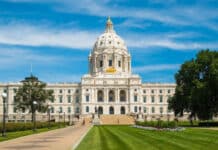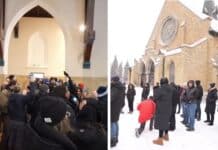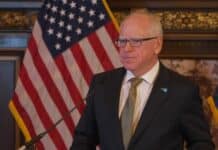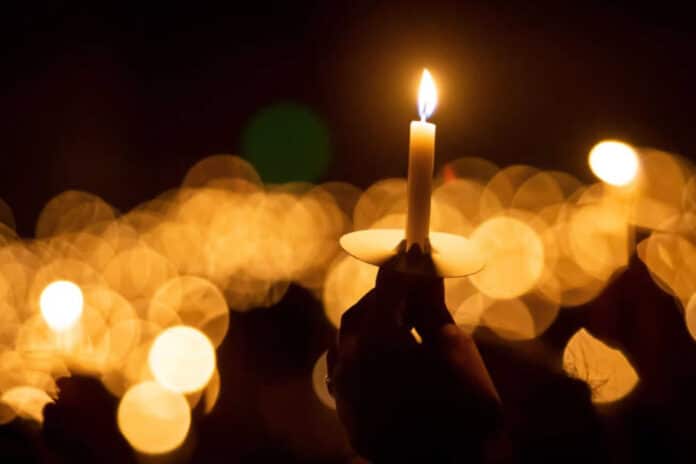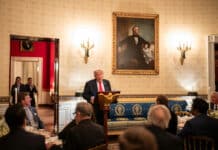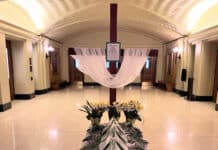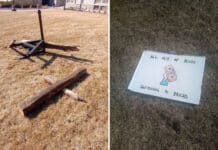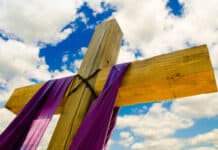(Brownstone Institute) — The days leading up to Easter Sunday of 2020 were the darkest days not merely of my priesthood, but of my life.
People were no longer allowed to attend Mass or even to go to Confession. My very life’s vocation was rendered suspended indefinitely. Worse yet, I experienced a deep sense of betrayal as I had been formed to believe that it was a priest’s job to be ready to “preach, pray, or die at any moment.” The lack of pushback against what had never happened in the whole of history seemed to render such a sentiment a macabre joke.
I experienced a similar sense of betrayal from many of my “friends” on Facebook. From the beginning I was vocal about how predictions of doom were obvious untruths and that lockdowns were tantamount to civilizational suicide. Many heaped mockery and derision upon me for having spoken blasphemies against the Narrative.
Echoing Jeffrey Tucker’s moving reflection, the sunrise had become a curse. Waking up became a moment to wonder what fresh new Hell would be unleashed upon us. It was during this time that I encountered a song which framed perfectly the emotions I was feeling:
“No good word today,
No good word today,
The sun’s still a shining
And I’m still above the ground,
But there’s no good word today.”
Worse yet, now approached the Sacred Triduum, the special liturgies which begin the evening of Holy Thursday and carry us through into Easter Sunday. The thought of celebrating this holy time in an empty church for the benefit of internet streaming transformed my favorite time of year into a period of intense dread.
It was as if the “night” of John’s Gospel, which represents an end of the “day” when the works of the Father may be done (John 9:4), the time when men stumble because the light is not in them (John 11:10), and when the betrayal of Judas is set in motion (John 13:30), had become our unbroken reality with no end in sight.
Of course, the night is not to be feared, for the darkness has not overcome the light (John 1:5). My experience of Good Friday and Holy Saturday in 2020 became a profound moment of grace for me, a moment that would strengthen my resolve against the forces of evil which had brought us to such a dark moment in human history.
Good Friday: Fear begets darkness
In seminary, one of my Scripture professors challenged us to understand that the text of Sacred Scripture doesn’t reveal all of its secrets in one’s first reading, but only through constant revisiting. Tasked with celebrating and preaching the Good Friday ceremony to only a camera, it occurred to me for the first time that, just like in lockdowns, nearly everybody was motivated by fear:
- The Sanhedrin is fearful of any challenge to their religious authority and they accomplish the trial at night due to fear of riots.
- Pontius Pilate is fearful for his career, as this whole affair has the potential to be the final straw that ends a career that has placed him in this “last chance” assignment. Pilate is fearful of the crowds. Pilate is fearful even of the concept of truth itself.
- Eleven of the Twelve Apostles are fearful. The faithless betrayer and thief is afraid for the end of his ability to embezzle and looks for one final opportunity to cash out. Nine disappear into hiding completely. The leader observes from a distance, but denies his friend and Lord under the slightest of social pressure.
- The crowds, easily manipulated by the passions of the moment, rapidly change their tune from “Hosanna” a few days earlier to “Crucify him” out of fear of standing out against the direction where these events were clearly going.
Such great evil accomplished in so short of a time! The fearful spiritual darkness of night unleashed the worst that humanity was capable of, not merely once in human history but as a recurring pattern. The spread of fear in March 2020 clearly had nothing to do with God or goodness. As I preached that day, I drew attention to a news story from an emergency room just days prior. Fear and panic were so prevalent that a woman assaulted and killed an old woman with dementia who, while confused, moved too close to her.
What was happening was evil. What was happening was dark, and it was fear that was the means by which this evil created the darkness.
Easter Vigil and the missing voices
Saturday night after dusk is the time for the Easter Vigil. Once again, I was charged with preaching. But at this ceremony, I would have a disturbing spiritual experience during the chanting of the Exsultet by the deacon when he arrived at the part which announces:
“Be glad, let earth be glad, as glory floods her,
ablaze with light from her eternal King,
let all corners of the earth be glad,
knowing an end to gloom and darkness.
Rejoice, let Mother Church also rejoice,
arrayed with the lightning of his glory,
let this holy building shake with joy,
filled with the mighty voices of the peoples.”
At this point I began crying and shaking. It was as if I could hear in my mind a malevolent voice taunting me: “Filled with what people’s voices? Look at these empty pews! Look at what I have accomplished! Behold and despair, priest.”
I did not listen to this voice, whatever or whoever it was. Instead I was filled with a sense of defiance, a defiance which I expressed in my sermon later in that ceremony. The light conquers the darkness! Nothing matters more than gathering together to fill a church and cry out with mighty voices! This evil which we have brought upon ourselves must never happen again.
That night I gathered with friends at a house for a wonderfully and defiantly illegal social gathering. There was no distance, no masking, and no fear, only a celebration of the coming of Easter.
Mere days later I would write my first op-ed wherein I condemned these indefinite lockdowns as intrinsically evil. Merely posting on my private social media wasn’t enough; conscience convicted me that my voice had to go public. Now was the time to side with the light which the darkness cannot overcome, even through manipulation of human fear. Now it was John Cash’s cover of an old gospel song that reinforced my disposition:
” … He spoke to me in the voice so sweet
I thought I heard the shuffle of the angel’s feet
He called my name and my heart stood still
When he said, ‘John, go do my will!’
… Go tell that long tongue liar
Go and tell that midnight rider
Tell the rambler, the gambler, the back biter
Tell ’em that God’s gonna cut ’em down
Tell ’em that God’s gonna cut ’em down.”
Defiant lights against the darkness
For Christians, Easter has always been associated with the initiation rituals whereby the works of darkness are renounced and put to death so that the new life belonging to the Light of the World may be begun. In ancient days, the catechumens would defiantly turn towards the West to make this renunciation and then turn to the East, leaving behind everything to make their profession of faith.
Far too many voices want simply to “move on” and pretend as if the last three years never happened, even as we continue to deal with the destruction which has been wrought. This is an attempt to avoid admitting just how dark the things which were done were, because such an admission would require repentance, as I argued at the beginning of Lent.
Three years ago I felt the depth of the darkness which had entered the world, and I was moved to choose defiance in favor of the light. This brought my path to be part of the good work being done here at Brownstone. A Happy Easter to all, and let us continue the good fight against weaponized fear which seeks to prevent us from experiencing our highest goods.
This article was originally published at the Brownstone Institute and is reprinted here under a Creative Commons Attribution 4.0 International License.

